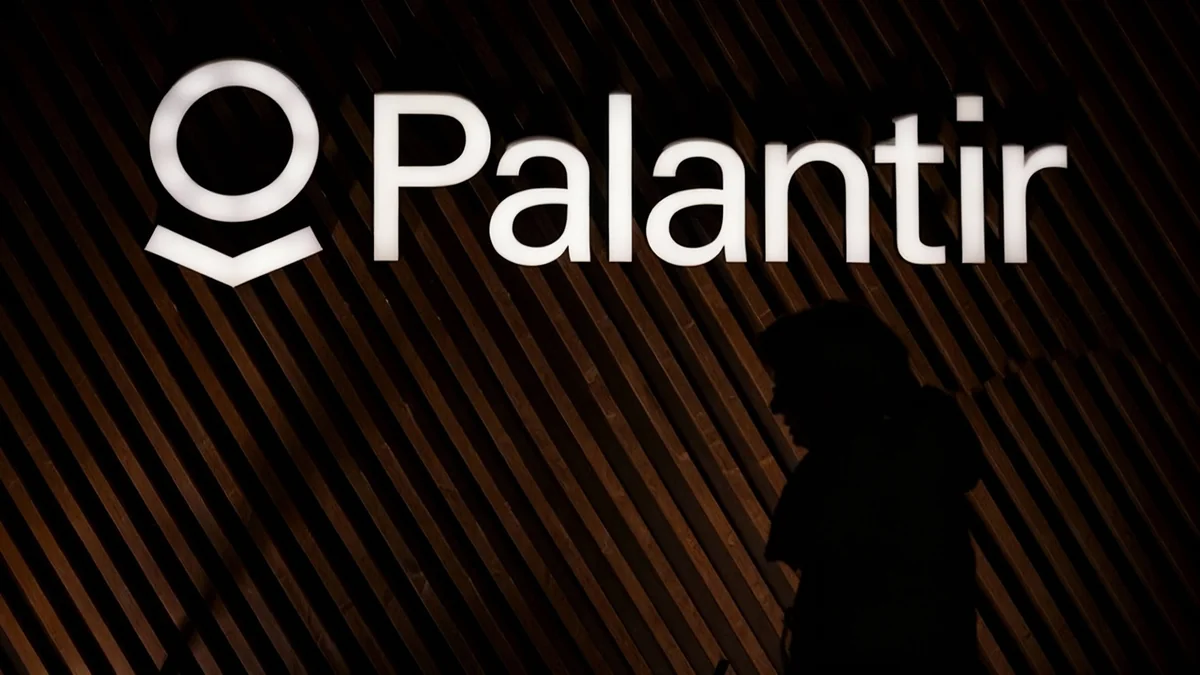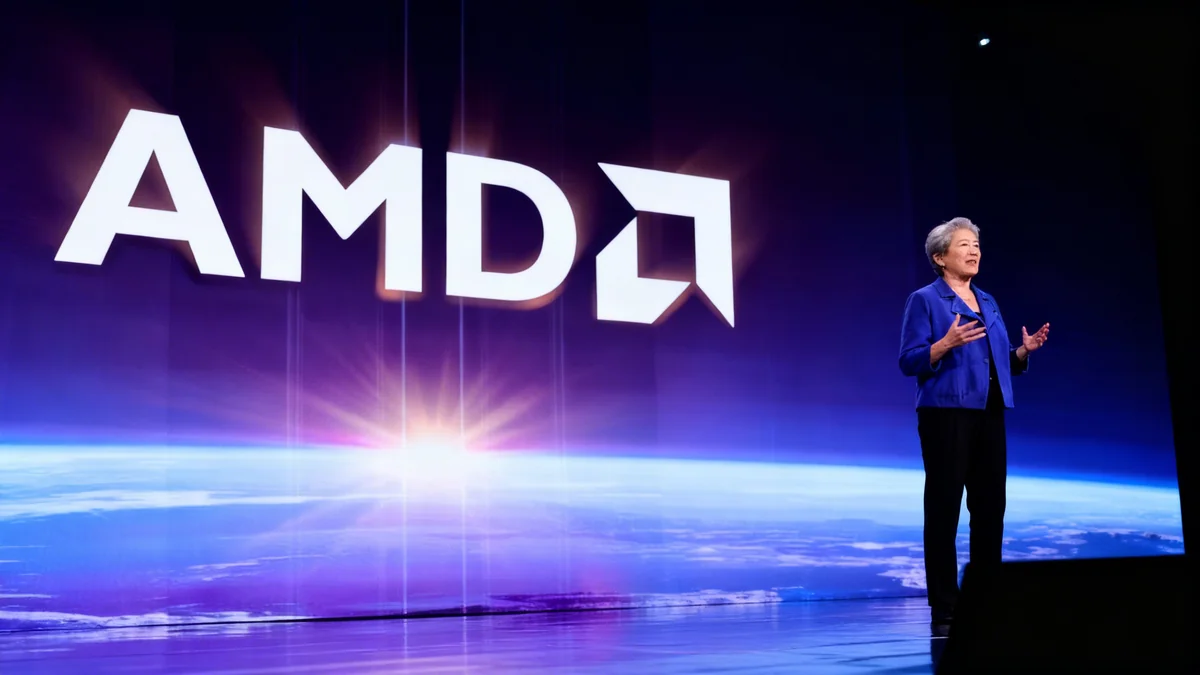The rapid rise of artificial intelligence has sent shockwaves through the stock market, pushing some company valuations to levels that are drawing increased scrutiny from market analysts. While the long-term potential of AI is undeniable, the current stock prices of some firms appear to be significantly outpacing their present-day financial performance, raising questions about a potential market bubble.
Two companies in particular, Palantir Technologies and IonQ, exemplify this trend. Both are pioneers in their respective fields, but their market capitalizations have soared to figures that are hundreds of times their annual revenue, a classic indicator that investor enthusiasm may have detached from fundamental business metrics.
Key Takeaways
- Certain AI-related stocks are trading at extremely high valuations relative to their current revenue and earnings.
- Palantir Technologies, a successful AI software firm, has a price-to-sales ratio of 138, indicating a stock price far exceeding its revenue.
- IonQ, a company in the speculative field of quantum computing, trades at over 400 times its annual sales.
- Analysts caution that such valuations are difficult to sustain and pose significant risks to investors if market sentiment shifts.
The Disconnect Between Hype and Reality
Throughout financial history, transformative technologies have often triggered periods of intense investor excitement. From the dot-com boom of the late 1990s to other technological revolutions, the pattern is often similar: a promising innovation captures the public imagination, capital flows in, and stock prices for related companies surge. The current AI boom is no exception.
However, this excitement can lead to a dangerous disconnect where a company's stock price is based more on future promises than on current performance. When valuations reach extreme levels, they become vulnerable. Any sign of slowing growth, missed targets, or a broader shift in market sentiment can trigger a sharp and sudden correction, causing significant losses for those who invested at the peak.
The core issue is not whether the technology itself is valuable, but whether the price investors are paying for a piece of that technology is justified by its foreseeable business results.
Palantir: A Strong Business at an Unsettling Price
Palantir Technologies (PLTR) stands as a prime example of a fundamentally strong company with a valuation that has raised eyebrows. The company is a leader in the AI software space, providing sophisticated data analysis platforms to both government agencies and large corporations.
Its technology has proven effective in high-stakes applications, including military operations, optimizing complex supply chains, and detecting financial fraud. The company is profitable and has demonstrated consistent, rapid revenue growth, driven by an expanding roster of high-profile clients.
What is a Price-to-Sales (P/S) Ratio?
The P/S ratio is a valuation metric that compares a company's stock price to its revenues. It is calculated by dividing the company's market capitalization by its total sales over the last 12 months. A high P/S ratio can suggest that a stock is overvalued, especially when compared to its peers or its own historical average.
Despite these business successes, the market's valuation of Palantir is what gives analysts pause. The company's market capitalization has climbed to an astonishing $471 billion. This figure stands in stark contrast to its trailing 12-month revenue of just $3.4 billion.
This discrepancy results in a price-to-sales (P/S) ratio of 138. To put that in perspective, a P/S ratio above 10 is often considered high for a software company. Furthermore, the stock is trading at more than 300 times its estimated earnings for 2025. Such metrics suggest that investors are pricing in decades of flawless execution and growth, leaving no room for error.
The risk for investors is that even a great business can be a poor investment if the entry price is too high. A minor slowdown in its growth trajectory or a cooling of the broader AI market could lead to a severe price correction for Palantir's stock.
IonQ and the Quantum Computing Gamble
If Palantir represents an overvalued present, IonQ (IONQ) may represent an overvalued future. The company is working at the cutting edge of quantum computing, a field that promises to deliver computational power orders of magnitude greater than today's most powerful supercomputers.
The potential applications are vast, from drug discovery and materials science to financial modeling. However, quantum computing is still in its infancy. The technology is highly speculative, and practical, error-free quantum computers are believed by many experts to be years, if not a decade or more, away from widespread commercial use.
The Quantum Market's Modest Size
Market research firm Grand View Research projects that the entire global quantum computing market will grow to just $4.2 billion by 2030. This is a significant figure but is dwarfed by IonQ's current market capitalization.
IonQ has begun generating revenue by selling access to its current quantum systems through cloud partnerships. Yet, its financial results are modest. Over the past year, the company generated only $52 million in revenue.
Despite this, investors have assigned IonQ a market capitalization of $21 billion. This means the company is valued at over 400 times its annual sales. This valuation is not only pricing in the successful development of a revolutionary technology but also IonQ's future dominance in a market that is still largely theoretical.
The uncertainties are numerous. It is not guaranteed when, or even if, quantum computing will overcome its significant technical hurdles. Furthermore, it is unclear if IonQ will emerge as the market leader or what its profit margins might be in such a competitive landscape. The immense gap between its current business and its market value places the stock in a precarious position, highly susceptible to a collapse in investor confidence.
Navigating the AI Investment Landscape
The enthusiasm surrounding artificial intelligence is well-founded. The technology is already reshaping industries and will continue to be a major driver of economic growth. However, history teaches that even the most revolutionary technologies can create speculative bubbles that eventually pop.
For investors, the challenge is to separate the long-term promise of a technology from the short-term hype reflected in a stock's price. Valuations that are detached from fundamental metrics like revenue and earnings carry inherent risks.
While companies like Palantir and IonQ are engaged in important and innovative work, their current stock prices demand a level of future success that is far from guaranteed. Prudent market participants are increasingly weighing the potential of AI against the tangible risk of investing at peak valuations.





